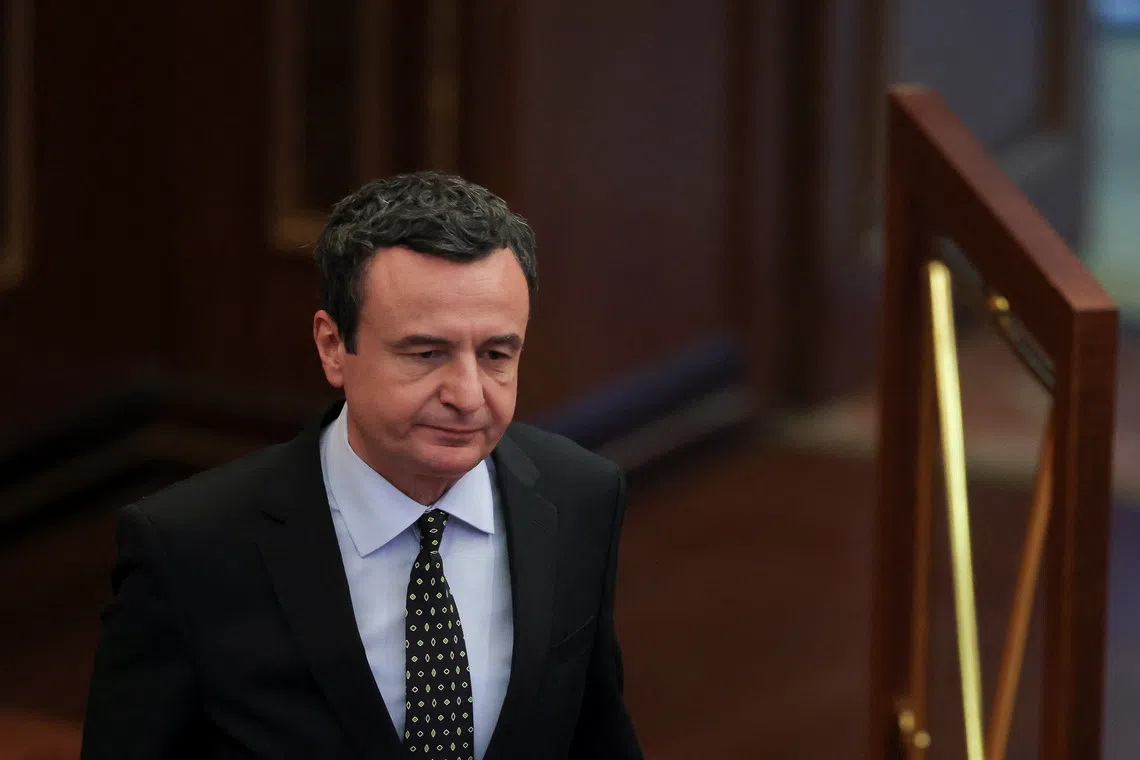Kosovo President Sets December 28 for Snap Election Amidst Political Stalemate and Failed Government Formation
 Kosovo
Politics
Kosovo
Politics

Kosovo President Vjosa Osmani set December 28 for snap parliamentary elections after Prime Minister Albin Kurti's party failed to form a government, urging dign
Kosovo Braces for Snap Elections on December 28 Amidst Political Gridlock
Kosovo's political landscape is bracing for an early parliamentary election on December 28, a date officially set by President Vjosa Osmani. This critical decision comes after a period of intense political gridlock, where Prime Minister Albin Kurti's ruling Vetevendosje party was unable to garner sufficient parliamentary support to form a new government.
Parliamentary Paralysis and the Call for Stability
Since the February election, Kosovo's parliament has been in a state of paralysis, with Vetevendosje emerging as the leading party but falling short of an outright majority. This has led to a protracted inability to establish a stable governing body, prompting the need for fresh elections.
Addressing reporters, President Osmani emphasized the urgency of the situation and called upon all political parties to engage in a "dignified election campaign" characterized by mutual respect and adherence to the highest political standards. "My call to the parties is that now they engage in a dignified election campaign, with mutual respect and the highest political standards," Osmani stated, urging them to prioritize the nation's interests.
She further implored parties, once the results are in, to "sit down, talk and take the responsibility that is yours," highlighting the critical need for "stable and responsible institutions that make decisions in their interest" for the citizens of Kosovo.
Opposition Concerns and Kurti's Tenure
The opposition has voiced strong objections to governing alongside Prime Minister Kurti, citing concerns over his handling of international relations with Western allies and his approach to the ethnically divided northern regions of Kosovo, home to a significant Serb minority.
Kurti, a prominent leftist and Albanian nationalist, initially rose to power in 2021 when his Vetevendosje-led coalition secured over 50% of the vote, granting them a seven-seat parliamentary majority.
Kosovo's Recent History and Future Outlook
Kosovo, recognized as Europe's youngest nation, declared its independence from Serbia in 2008. This declaration followed a 78-day NATO bombing campaign against Serbian forces in 1999, with crucial backing from the United States.
The upcoming snap election is poised to be a pivotal moment for the country, as it seeks to overcome its current political impasse and form a functional government that can address the pressing needs of its citizens and navigate its complex regional and international relations.